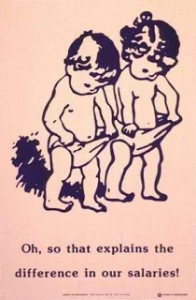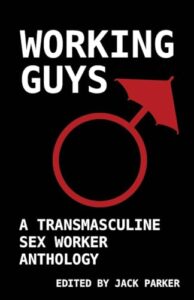In 2013, cisgender women in Singapore earn 88 cents for every dollar that cisgender men make according to the Ministry of Social and Family Development. However, this gap becomes more apparent for transgender women. Transgender women earn 70 cents for every dollar that cisgender people make.

Another case of a trans woman who have the qualification of a promising future, but unfortunately she’s not able to use her qualification and skills due to the reason of being a transgender.
Deepi, an educated trans woman, age 26. Graduated from MDIS with a Diploma in Business Management. At an age like hers, anyone out there would already have a stable job, good income and already planned their career. But as for Deepi, with her qualification she still can’t find a job. Even after going for different kinds of job fair and seek help from Community Development Council. So to make ends meet and be employed, she applied for a job as a security officer. Everyone will have that thinking of security officer mostly are aged Singaporean man or foreign worker. For Deepi she doesn’t mind being a security officer as she feel that there’s no other choice for her. Upon interview at XX Security company, she was directly told by the Singaporean Manager that she will only be paid $1200. The industry standard for security guards ranges from $1600 – $1800. So in her case she was offered a very high pay cut with the manager strictly saying “You are a transgender, we can only pay you this. If you want take it, if not it’s okay.” Despite knowing with that little amount of pay, she can hardly survive, she still took that job because they claim her pay will be gradually increased.
Deepi started working there on December 25th 2012, she was discriminated by her manager and the management didn’t like her. She was transferred to another workplace because the management claims that guest are afraid of her. After she was transferred to a new place, there were no guest complaints about her. She continued working there till November 30th 2013. She left the job because after almost a year of working with XX Security company, her pay still remains the same. Meaning she did not receive any increment. Meaning she was robbed of at least $6000 in her one year in that job.
Deepi has the intention and plans to undergo a full sex reassignment surgery (SRS). She says that “If I was paid $1800, I would still work for the company and also go for the sex surgery.” But she has no choice, hardly able to survive working as a security officer, she turned to sex work.
After 4 months of being a sex worker, she finally had enough money to undergo the operation. Not just being able to save up for her surgery, she’s able to cope with her daily expenses and also manage to put aside some money for savings.
Deepi now is a fully operated transgender. She had a dream achieved.
Project X lodged a complaint to the Tripartite Alliance for Fair Employment Practices (TAFEP) in October 2014. TAFEP claims to want to help mediate in cases of workplace discrimination. However, Deepi only received one call from TAFEP and that was to clarify what happened. She then never heard back from them again.
Overall this shows another hardship that transgender people face. Be it in work, daily life and also public acceptance. As a transgender myself, I feel her hardship. Even for a cis man or woman its hard to survive with their work, what about us transgender? Some who work with a low pay, and some even don’t have work. Normal work doesn’t pay us well, and we are often not given a chance to work normally. This is to conclude that sex work is not what we enjoy doing. There is a story behind every transgender woman who enters into sex work. In my opinion, many of us would not want to do this full time for a living. But from Deepi’s case, it is clear that sex work was an opportunity for her to fulfill her dreams.
When asked how she felt about this ordeal, Deepi said, “Transgender people have the right to be treated equally!”
—

Sherry is the Youth Programme Coordinator at Project X. She is a freelance expert in secret affairs and is very open to any possibilities and chances to upgrade her knowledge. She is currently working on compiling a zine that documents trans lives in Singapore.





